Trailblazers: Alumni Make Their Way
Drexel University College of Medicine and its predecessor institutions have a long history of graduating trailblazers, including Eliza Grier, one of the nation’s first Black doctors; Susan La Flesche Picotte, the first Native American to earn a medical degree; or Ann Preston, the first woman medical school dean in the world. As we hear from alumni today, it’s clear that you are still forging new ground.

By Jeff Johnson
We spoke with a wide range of Drexel alumni about how their experiences at their alma maters influenced their careers and set them on the path of their unique accomplishments. Some of them discuss the ways they are advancing contemporary medicine and education, some reflect back on their storied careers, and others look ahead to breakthroughs they hope to make. We learned about the strides they have made in expanding and diversifying their fields, working with the current generation of medical and graduate students, and their advice for those who are early in their careers.
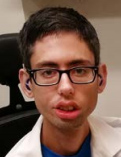
Justin Cohen, PhD, Molecular & Cell Biology & Genetics ’18, is a postdoctoral fellow at Yale University School of Medicine, doing research on a disease he lives with, facioscapulohumeral muscular dystrophy (FSHD).
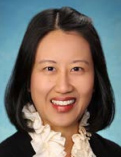
Ann Zera Tan, MD ’04, is the first female chief of staff of Adventist Health White Memorial Medical Center in Los Angeles.
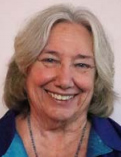
Pamela Parke Bensen, MD, MCP ’70, MS, is the first female board member elected to the American College of Emergency Physicians (ACEP), and is an emergency medicine specialist in Buffalo Junction, Virginia.
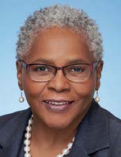
Altha Stewart, MD; Psychiatry Residency, HU ‘82, is senior associate dean for community health engagement, associate professor of psychiatry, and director of the Center for Health in Justice Involved Youth at the University of Tennessee Health Science Center. She was the first Black president of the American Psychiatric Association.
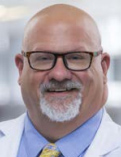
Ralph Riviello, MD, HU ’94, is the first openly gay chair of the Department of Emergency Medicine at the Joe R. and Teresa Lozano Long School of Medicine at UT Health San Antonio.
AT DREXEL
Our interviewees are at different stages in their careers, and their experiences with Drexel span multiple eras and provide glimpses of its history. We asked them to talk about their time at Drexel, what they learned, and what they found especially memorable.
DR. COHEN: First and foremost, my time at Drexel gave me a good background in laboratory research, so I was able to apply the tools that I learned to my postdoc. Even beyond that, it gave me the opportunity to work with different types of people and personalities, which taught me how to collaborate better with people.
DR. TAN: Once I started residency, I realized how well Drexel prepared me in the foundation of pathology. The communication skills that we worked on as medical students served me well in my career, as my field heavily relies on working and communicating with surgeons, oncologists, gastroenterologists and others.
DR. BENSEN: Drexel University College of Medicine was Woman’s Medical College when I entered, and the federal government mandated that federal funds would no longer be given to any institution that discriminated based on gender. This was the biggest group of graduating medical students every year who were female. Every other medical school in the country had a few women. We were told that because of the law we had to have men, and so the decision was made in 1970 that we would become co-ed by adding to the 60 women that the school accepted.
DR. STEWART: Everything that I learned at Drexel was part of preparing me to be ready to do everything I did subsequent to my time at Drexel: working as the executive director of one of the largest public mental health systems in the country, Detroit Wayne County Community Mental Health Agency; serving as commissioner of mental health in New York City; even my work in Philly before I started to move around, I was medical director and then CEO for what is now Community Behavioral Health. This all directly related to the training, confidence and support that I received at Drexel. I think all roads lead back to where I began at Drexel in becoming a psychiatrist.
DR. RIVIELLO: I am forever thankful to my Drexel chair, Dr. Richard Hamilton, for the guidance, advice and counsel he gave me during my time there. He lit the fire in me to become a department chair. Early in my career, in a simple end-of-the-year review, he said to me, “Where do you see yourself going?” That question and the subsequent encouragement started me on the pathway that led me to where I am now. That is what I hope to do for any of my faculty and residents here. Light the fire for them to think beyond the here and now and to look toward the future, and to help them get there.
ACCOMPLISHMENTS AND CHALLENGES
These alums are doing impressive work. Of course, their accomplishments have not come without struggle and sacrifice. We talked about their achievements, as well as challenges they have worked through as they sought to advance within their fields and make an impact in their communities.
DR. STEWART: The work that I do now is with young people, children and adolescents who are at risk of going into out-of-home placement. Whether it’s juvenile justice systems, child welfare systems or something else that takes them away from home and family and community — that work is a part of a movement around the country to keep children out of systems and in their homes and families, because that’s where they best grow and thrive. What we do now at the University of Tennessee Health Science Center around this particular population is some of the most creative and innovative work that I’ve ever done, because you’re combatting limited resources, bad images and stigma, mostly of mental illness or childhood trauma. What you really want is for these children and their families and communities to be in a better position than when they first came to you for help.
DR. BENSEN: It took me seven years to get 911 in my community because there was only one in the country when I started working on it. I trained the first paramedics in the state of Maine, got statewide EMS protocols, got the ACEP chapter up and running in Maine, spent years lobbying in Washington, D.C., for emergency medicine. I’m really proud of the fact that everything you experience when you go to the emergency department today, I personally or through ACEP have had some impact on.
DR. RIVIELLO: The accomplishment I am most proud of happened in Philly in 2011. After a few years of planning and developing the program, we were able to successfully launch the Philadelphia Sexual Assault Response Center, which provides 24/7 medical examinations to victims of sexual violence. It was the first program like it in the state and one of only a few in the country. It has been hugely successful and rewarding and has helped thousands of survivors over the years. I hope to try to replicate something like it here in San Antonio.
DR. COHEN: I have the unique perspective of being both a patient and scientist studying FSHD. This makes studying the disease much more personal, as I know what it means firsthand to experience all of the symptoms. At the same time, it can make things difficult because I understand just how challenging this disease will be to treat and/or cure and that, while there are promising therapies in development, it will still be a while off. The other challenge is that laboratory research is very demanding, even for someone who doesn’t have a disability. Having a muscle weakness means that my endurance is not the same as a typical person’s. I have to be good about time management in order to make sure I can still do my work.
DR. BENSEN [who ran for the ACEP board five times before being elected]: The second time I ran for the board, my husband and I went to the reception afterwards and ran into a man I knew. And the man said to me: “Well, I don’t know. You are just so qualified. I just don’t know why you didn’t win. But you know a southern gentleman. We just couldn’t vote for a woman.” Well, luckily my husband had my right arm in his left. Because otherwise this guy would have found himself on the floor.
DR. TAN: Many professional women face the challenges and hardships of work/life balance, especially after having kids. We are often torn between two worlds that we love — to choose between our children versus commitment to our patients, their cases and our health care family. I still struggle with it today, but I am definitely more efficient at work because of it. The dual role of being a professional career mom has taught me critical time management and organization skills that have given me the ability to do both.
DR. BENSEN: The “Meet the Candidates” [board election event] would put you up on the stage and they would ask you questions. And one question they asked was, “What would you bring to the board that nobody else has?” And I started my comments with “I would bring a broad perspective. And more estrogen than anyone else running.” I figured, OK, I’m going to put this right out on the table. Then I told them the story about what that man had said to me after the last election. And I said to the group, “I want you to know I’m not asking you to vote for me because I’m a woman. I’m asking you not to vote against me because I’m a woman.” And that was the year that I won.
DR. RIVIELLO: One of the formative challenges I’ve faced was whether or not to be out at work. I was afraid that being out would have some negative impact on my work, my career success, how I was perceived by staff, students and residents. When I moved to Philadelphia, I was fortunate to join a department that had several out faculty members and drew upon my diversity experiences when I was a student at Hahnemann. I saw them and their successes and realized that in this environment, it was safe to be out. And to be honest, it was really no big deal. I have succeeded because of what I did, what I accomplished, my hard work, not because I am gay or straight.
TRAINING THE NEXT GENERATION
Some of our interviewees teach in addition to their clinical and research endeavors. We asked about the relationship between these roles, and their impressions of their students’ emerging perspectives.
DR. STEWART: I think students are coming into this with a strong sense of understanding that it’s a privilege to work in this environment, to know these things, to learn these things, and to share that knowledge with people who need it. They also bring a strong sense of health as a social justice issue, that a part of exercising their privilege is to make sure that the right to health care is available to all.
DR. RIVIELLO: We need to be able to provide [our residents and students] a solid practice environment that exposes them to countless types of patients and patient experiences. In order to teach, I also need to make sure we have passionate, diverse faculty members who want to be here to teach and care for patients. Our clinical site is a great training site as it has a phenomenal mix of patients and acuity. In order to provide that opportunity, I need to make sure our clinical operations are in sync with the hospital’s goals and objectives, and we are good stewards of the hospital’s resources.
DR. STEWART: Training to become a doctor during the time of COVID-19 is going to create a very different kind of medical professional. Now we have a generation that will remember their clinical training on a unit where the letters PPE are as important as BP, blood gas, all of those things that as clinicians we learn and take for granted as part of our lexicon. Now there’s a whole new vocabulary: COVID, PPE, having to FaceTime with patients who are dying because families can’t visit. Having to work the shift under the pressure of knowing that you are very limited in what you can do to heal, when we go into this to be healers. Health equity, health disparities, the traumas associated with racism, and structural and systemic racism, are all things that lead back to: Will this person have better health if we deal with these things as part of a health care issue?
DR. RIVIELLO: I have also learned through the years that everyone, no matter who they are or what they are doing, is on a pathway and they progress at their pace, not at a pace that I think they should or that I want them to. So, I have learned to be more patient with folks and help them to achieve the potential they see in themselves, not one that may be artificial or too far-reaching.
PAYING IT FORWARD
Finally, we asked these alumni what advice they would offer to someone facing similar opportunities and challenges early in their career.
DR. STEWART: If I’m talking to young people today, I remind them that a lot of their energy and enthusiasm was shared by the members of my generation when we were at their place in the career development line, and that while we may approach things differently, we have things to learn from them. But we old folks still have a few tricks up our sleeves that they might want to make use of. Maybe if we blend our knowledge with theirs we can create the system that we all want.
DR. TAN: Having practiced pathology and clinical lab medicine for 11 years now, not only have I learned so much about the advances in this field, especially in molecular testing and cancer genomics, but I’ve learned so much from my environment and those I work with every day (techs, physician colleagues, administrators, nurses, lab assistants, etc.). They have taught me to keep an open and creative mind. I learn from everybody, from all aspects of my hospital team, and am blessed to be surrounded by good people. Because of that, I have grown and become confident in taking on roles I thought I would never have.
DR. BENSEN: You have to assume the best in other people, confront them in a way that doesn’t create more friction, and be persistent. The other thing I would suggest is to find a support group. Four people is perfect. Find people who are in the same situation that you are in, but who have different experiences.
DR. COHEN: I would definitely say don’t try to do everything by yourself. A lot of my ability to succeed came from the fact that I was able to look into available resources. Especially for someone with a disability: You need to be able to take advantage of everything that’s available to you. Don’t be afraid to ask for help.
DR. RIVIELLO: Never sell yourself short or try to be someone you are not. It does not work, and people can see right through you. Instead, be yourself and let your talents, actions and passions speak for themselves. Also, do not close the door on new ideas or opportunities. I would not be here today if someone had not asked me to do something that I never would have thought of doing. And finally, I would be remiss if I did not tell them to be humble and remember that everything we do, we do for our patients. Without them, we would not be here.
Back to Top